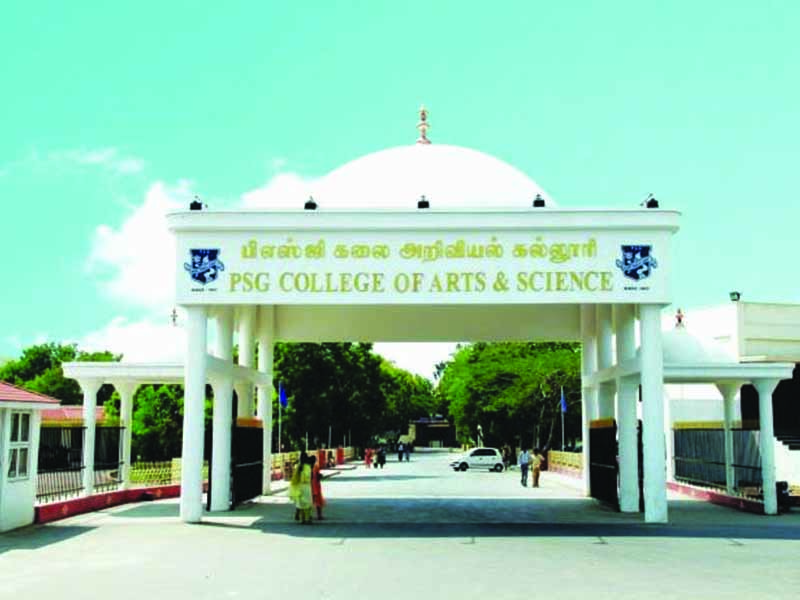Shivani Chaturvedi (Chennai)
The association of university Teachers (AUT) which represents higher education faculty across Tamil Nadu (pop.89 million), has formally urged the state government to reject proposals for converting government-aided private colleges into autonomous private universities. Encouraged by provisions of the National Education Policy (NEP) 2020 which advises phased conversion of all universities and undergrad colleges towards autonomous status, 15 of Tamil Nadu’s 163 government-aided colleges have applied for private university status, says AUT President M.S. Bala Murugan, professor of English at the state government-aided National College, Trichy.
“Tamil Nadu has 163 government-aided private colleges, and some of them are seeking to convert into private universities under the Union government’s NEP 2020. These institutions are attempting to secure no-objection certificates from the Tamil Nadu government. If permitted, thousands of underprivileged students will be negatively impacted,” wrote AUT vice president P. Thirunavukkarasu, in a letter to the state’s higher education minister Dr. Govi Chezhiaan.
According to AUT, conversion of private aided colleges into private (deemed) universities will result in higher tuition fees, limiting access to education for economically disadvantaged students, and jeopardise the rights of faculty. Moreover as private universities are not obliged to practice affirmative action, privatisation would deny scheduled caste, scheduled tribe and OBC students concessional access to higher education. “Aided colleges exist to ensure affordable and inclusive education. Converting them to private universities would betray this purpose,” says Bala Murugan.
On the other hand, proponents of privatisation highlight that NEP 2020 specifically encourages self-financed and aided colleges to apply for private university status in the interest of improving teaching-learning standards and learning outcomes. According to reliable sources, PSG College of Arts and Science (Coimbatore), Thiagarajar College (Madurai), Krishnammal College for Women (Coimbatore), and St. Joseph’s College (Trichy) have applied for private deemed university status.
This is not the first time such a proposal has been met with resistance. In 2008, when the ruling Dravida Munnetra Kazhagam (DMK) was in power, a similar attempt to grant deemed university status to aided colleges was thwarted after public protests. Then chief minister and DMK supremo M. Karunanidhi stalled the proposal, prioritising equitable education access over institutional autonomy.
The incumbent DMK government (headed by Karunanidhi’s son M.K. Stalin) which was returned to power in Chennai in 2021 has not reacted to this proposal. Given its declared antipathy to NEP 2020 — in June 2022 the state government appointed a commission chaired by Justice (Retd.) D. Murugesan to formulate Tamil Nadu’s independent SEP (State Education Policy), which submitted a 600-page report — the incumbent DMK government is unlikely to support privatisation of aided varsities. Tamil Nadu’s DMK government has consistently criticised the NEP 2020 for promoting “Hindi imperialism” as also centralisation, privatisation, and “commercialisation” of education on the ground that privatisation will adversely affect students from EWS (economically weaker sections), depriving them of affordable education.
However, according to independent educationists, AUT’s opposition to privatisation of higher education is driven by self-interest rather than professed concern for EWS students. It’s well-known that the faculty of government — especially state government-run — colleges and universities enjoy “huge salaries” with almost no responsibility for students learning outcomes, and especially employability. “Contemporary India’s huge — and growing — educated unemployed problem is mainly the consequence of state government — India’s 56 Central government universities are far superior — faculty, often recruited on caste considerations, working in ivory towers with no connect with industry dispensing obsolete learning. Institutional autonomy and privatisation would necessarily demand greater accountability from them. Hence their vehement opposition to this proposal which is necessary and overdue,” says a dispassionate faculty member of a government university, speaking to EducationWorld, on condition of anonymity.
Quite obviously advocacy of the public interest can be — and often is — driven by self-interest.
Also read:
